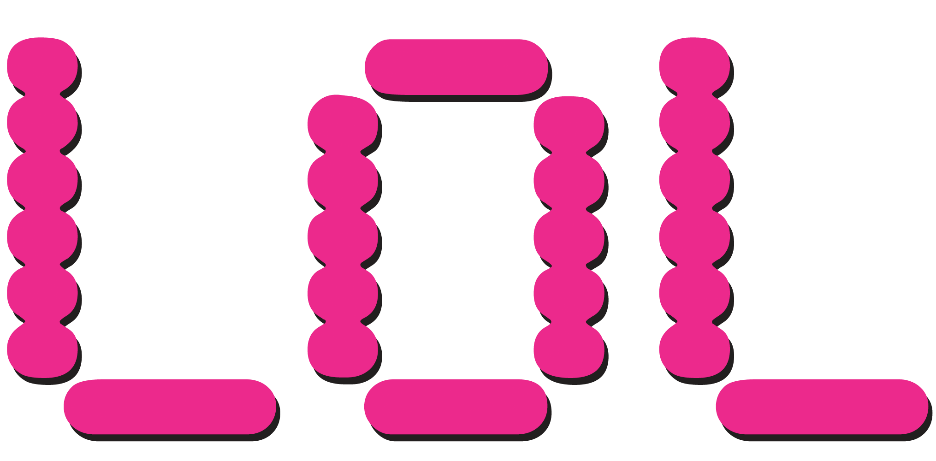I usually read, but do not respond to, the comment threads on my articles for this publication and others. Why, then, do I read them, despite my editor’s adamant suggestions not to? To a certain extent, I have a perverse pride in rankling ideologues of all stripes (and for those of you critical of my left-leaning skew, this article upset many lefties), and as much as it is certainly not derekh eretz, it is certainly more than flattering. Sometimes, readers write genuinely awesome comments–and I have been lucky enough to meet some fabulous people through them. One time, I even got a book for free! However, most of the time I do not bother responding. It is usually people who are upset that either the world is not as simple as they thought, that someone might disagree with them, or that I did not include their favorite XYZ example of whatever I wrote about. In all three cases, a world that lacks nuance is assumed.
There is, however, another comment thread to which I do sometimes respond: that of “social justice” and other progressive groups on Facebook. Oftentimes, these tend to center on the fact that someone said something “problematic”–be it true or debatable. (For a better description of this culture, I advise you to read this incredible piece by Kate Cross.) I often jump in to provide some sort of other perspective in the discussion from my little branch of the social sciences–usually, to explain why a problematic thing is problematic, or how said problematic thing reflects other unfortunate realities. However, there is a certain extent to which I try not to get too involved–and to take on a “kindly professor” vibe rather than “seething angry guy.” Furthermore, it is helpful to remember that a problematic thing can reflect many other hierarchies–and that calling people out can, if done badly, be ableist and most certainly not derekh eretz. In all circumstances, however, these threads have the same problem as the threads on articles: they often assume a world that lacks nuance.
In this context, how do we–as Jews–operate? What can our tradition–and others–teach us about how to act on the internet?
I shall bring up two separate teachers: Rabbi Hillel and angry people on the London Underground.
Let us start with the former and more obvious example–after all, Rabbi Hillel’s elucidations on the role of Torah in our interpersonal relations still govern our behavior as Jews today (or at least attempt to). When asked to describe the Torah while standing on one foot, R’ Hillel simply said: “What is hateful to you, do not do to your neighbor. That is the whole Torah.” At first, this statement may contradict another famous dictum of the Rabbi: “If I am not for myself, then who is for me…and if not now, when?” (Contradictions are not necessarily bad.) How do they contradict? One could say that the need to say something–so urgent that you must say it, even if it is unkind, lest it go unsaid–should override kindness. In the other direction, one could say the need to be kind should override the need to state the obvious, which as we all know happens more often than we care to admit. However, these do not contradict because R’ Hillel would contend that both situations are necessary. We must be kind AND we must speak, we must let our kindness control our speech and our speech control our kindness. Derekh eretz means thus, “one must balance both kindness and the need to speak as necessary.” That said, it is fine to offer different perspectives and certainly necessary to call out racism or sexism, but one must not allow such to turn into a lack of kindness. That is not Torah! At the same time, it is also not Torah to stay silent. Nor, in a way, is it kind. R’ Hillel, if he were alive today, would perhaps be a gentle commenter: offering kind criticism while encouraging the author to write further. More realistically, he would recoil from the cesspool and lack of derekh eretz in the forums of Tumblr and Reddit.
Given these thoughts, one might think that Tube passengers are the opposite of derekh eretz: rude, pushy, and completely uncommunicative. But there is a kindness to their behavior as well. How so? There is a certain “live and let live” to the coldness and forwardness of passengers on the Tube. You do not have to perform London-ness, or kindness, or awkward small-talk conversations. All you have to do is be, and in return (though not always) you are also left alone. Even if you slip and do something stupid that doesn’t really harm anyone else, even if you accidentally jostle a little too hard. At the end of the day, you’ll all get to Whitechapel at roughly the same time. The derekh eretz is thus: you are not impinged to perform, whereas in a comment thread, you Flavia Dzodan once noted, it feels there as if there is an audience demanding “more soul!” as you go further in. But on the Tube (and the New York subway too), at most, you are expected to be left to your journey.
Between Hillel’s one-footed dictums and the halakhic non-action of Tube passengers, what do we learn about our behavior on the internet? Firstly, that it is sometimes best not to say anything at all–though it is of course important to call out terrible speech, it is also important to know how to do so. (Some Sages doubted that anyone in our era can!) Secondly, that no matter what, one must remember the grace, betterment, or other circumstances that a person is coming from. That is Jewish behavior: to leave people to their journeys without a need to perform, but to be kind and helpful in guiding them along. So what of comment threads?
Comment threads are not only maddening, but as we have learned, the most un-Jewish of environments. Not only do they often encourage terrible speech of no good purpose, but also contribute to denying the grace that the Talmud insists is present in all people–for we are created in the image of God. It is often better, more appropriate in fact, then, to leave people be as it perhaps may be God’s will. Comment threads do not allow one to be left alone.
Jonathan P. Katz is an American student at Oxford University in England.


